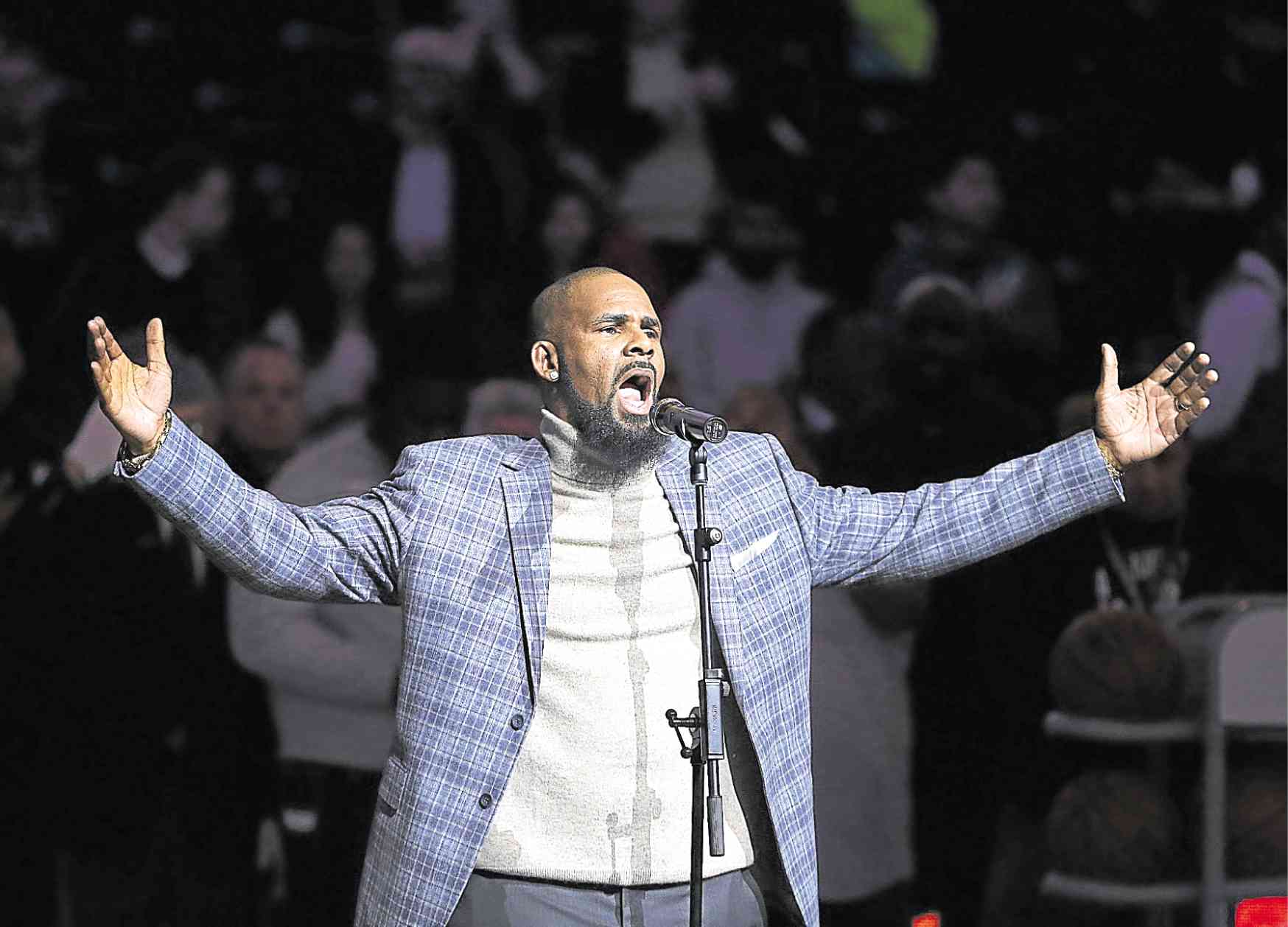
R Kelly
DETROIT—When recordings of the basic track arrived in Detroit from Chicago, Paul Riser Sr. knew it was time to get to work. But the orchestral arranger also knew he had something special to work with.
“It hit me the same way like everyone else in the world: The lyrics are so simple, the melody is so clear, the chord pattern is wonderful,” said Riser, a Motown Records alum who wrote the orchestra parts and directed the strings and woodwind musicians for “I Believe I Can Fly.” “That song came from his heart: That’s the other side of R. Kelly.”
The dilemma of separating the sides of Kelly, who faces 10 counts of aggravated sexual abuse, now confronts Riser and millions of others who listen to or perform the singer’s music. It’s perhaps most acute when it comes to the Grammy-winning ballad that’s made its way into movies such as “Space Jam,” and been performed in countless reality shows, church services, as well as school concerts and graduation ceremonies. Children are even singing it bilingually.
Kelly released his first solo album, “12 Play,” in 1993. It contained such popular sex-themed songs as “Your Body’s Callin’” and “Bump N’ Grind.” But it was the anthem “I Believe I Can Fly” that made the singer from Chicago’s South Side popular beyond R&B music.
The 52-year-old Kelly has faced sex-related accusations before—he was acquitted of child pornography charges in 2008. But his current case comes in the midst of the #MeToo era, which gained momentum in 2017 amid sexual misconduct allegations against Hollywood studio boss Harvey Weinstein and other powerful men in entertainment.
Before his arrest last month on the latest charges, Kelly’s reputation and his music were already taking hits, particularly after the release of a BBC documentary about him last year and the multipart Lifetime documentary “Surviving R. Kelly,” which aired in January. A social media campaign under the #MuteRKelly hashtag pushed fans to boycott his music and concerts. Music-streaming services stopped promoting his songs.
Some performers and listeners are finding it difficult, though, to dismiss the standout cut that vaulted him into the mainstream.
Released in 1996, “I Believe I Can Fly” spent six weeks at No. 1 on the Hot R&B/Hip-Hop Songs chart and peaked at No. 2 on the all-genre Billboard Hot 100. It’s been streamed on-demand more than 100 million times.
In the wake of the Lifetime documentary, Billboard reported Jan. 18 that the song debuted at No. 16 on R&B Digital Song Sales with 2,000 copies sold—the tune’s highest sales week in nearly three years.
Riser, the Motown alum who worked with Kelly for about a dozen years before meeting him in person at a Detroit show, said he’s “troubled” by the allegations and believes Kelly’s accusers. Yet he can’t so easily cast off “a song we all wish we could write. We have to separate that—separate the man, his humanity, his faults and failures—from his genius.”
Kelly is free on bail but faces canceled tours and once-eager venues unwilling to book him. He’s also been dropped by his record label, Universal Music Publishing Group.
James Walker Jr., an Atlanta-based entertainment attorney who has represented Rick James and Aretha Franklin, said Kelly has compromised his own classic.
“The song will honestly take a hit now,” said Walker, who adds that he declined a request to represent Kelly on publishing. —AP